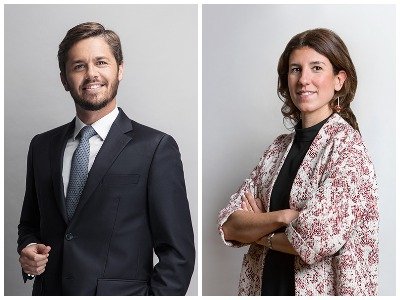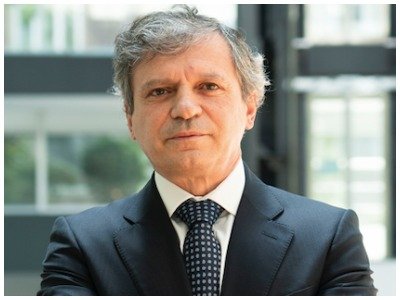Don’t Leave Home Without It

American Express first advised its consumers that they shouldn’t leave home without them, back in 1975, in what was one of the company’s most famous advertising campaigns. The world is a different place today and the Spanish office of AMEX has experienced this change first-hand. It first opened its doors to Spanish customers back in 1951. Iberian Lawyer was delighted to interview Claudia Ramajo, VP & senior counsel, Legal Spain, for this insightful piece. The lawyer was generous and transparent when sharing her own personal journey since leaving the world of private practice at Pérez Llorca. We gain insight into the innerworkings of the company, and how despite the challenges of COVID, their first priority was to look after their own. It sounds like the board at AMEX value their legal team as closely as their product, best “don’t leave home without it.”
 You began your career at Pérez-Llorca and have been an in-house lawyer at American Express for more than six years. Why did you decide to exchange private practice for the in-house world and how would you summarise this period?
You began your career at Pérez-Llorca and have been an in-house lawyer at American Express for more than six years. Why did you decide to exchange private practice for the in-house world and how would you summarise this period?
I am very grateful for the opportunity I had to begin at Pérez-Llorca. I learned to work (and also very hard). I internalised the sense of discipline and had the opportunity to participate in very interesting matters and make great friends. I was dedicated to Litigation and Arbitration. I loved the practice, the legal analysis, going to the court for hearings, etc. But at a given moment, I needed a change of direction. I found it very interesting to get fully acquainted with the financial sector in order to be able to give legal advice in a different way, from the knowledge of the activity and the company, and not from the role of a specialist in a particular area of law. I was attracted to work for a single client, become fully involved, and understand the business to advise from within. Likewise, I believe that the position of in-house lawyer fits very well with my way of being, it has allowed me to work hand in hand with the business and with other teams of diverse professionals. The challenge of having to adapt to the organisation, and its natural dynamism, is a lot of fun. I couldn’t be happier to have made the change, and I think I’ve been very lucky to have had the opportunity to join American Express. I think it’s a company in a booming sector, with a great future, both from the point of view of business and regulatory and, furthermore, with an enviable business and human culture.
American Express has experienced exciting changes in recent times and this beginning of the year also promises to be very positive. What news come for the division of Spain?
American Express has more than 170 years of history and we began operating in Spain in 1951. It is clear that the company has been able to navigate through all kinds of changes and adapt, constantly renewing itself. Without a doubt, in Spain we are in a very sweet moment. More than 400 new permanent jobs are being created during this 2022 and we will have more than 1,150 employees. These positions will be primarily for governance and compliance support and we will also strengthen a team of service delivery and revenue generation excellence. In short, we are managing to position the Spanish market not only as the European legal headquarters, but also as a centre for attracting investment within the group, and this is fortunate for all of us who work here.
Brexit emphasised the Spanish market as far as AMEX is concerned. How has the “change of axis” influenced the growth of the Iberian headquarters? And what impact has it had on the Legal department specifically? How is your department currently made up?
In 2018 we started executing our own contingency plan to be able to continue our European business and, after an exhaustive exercise, American Express selected Spain to locate its legal licensing hub for the majority of its European Union and EEA business. Banco de España has become our main reference regulator in Europe and the market has acquired a special relevance in the corporation. All this represents excellent news for us and confirms the recognition of the well-established business that American Express already had in Spain before. As for the legal team, growth has been exponential. When I arrived 6 years ago, we were two lawyers for Spain, and currently we are almost a dozen divided into various teams and growing. A part of the department is dedicated to Spain as a market and as a hub for Europe, and there are other teams that provide central support to various EMEA markets in labour, financial regulation and corporate secretarial matters.
COVID-19 has put all the teams and their leaders to the test, what values do you appreciate most about AMEX?
American Express responded in a truly positive way when the pandemic began and all colleagues have noticed and appreciated it. Although the outbreak of the pandemic hit the business hard, from the beginning, the main concern at American Express was the employees and their safety and health. There was no talk of anything else. It was shocking to see how the business meetings were transformed into meetings focused on analysing the impact on “colleagues” (in Amex we call them that) and evaluating how the teams were from an emotional and health point of view. American Express has always taken great care of its human assets, but since COVID, I have been able to see how the company has systematically focused on employees. For example, we have a working group with weekly meetings, where we review the incidence of COVID, contingency plans, the evolution of the teams, as well as all kinds of issues related to this new normality to which we are all having to adapt.
AMEX maintains an active role in the movement for equal opportunities regardless of gender. From the Legal department, what role do they play in these decisions? Do you also consider these premises of equality when establishing your signature panels, for example?
Of course, American Express places great importance on ensuring an inclusive and diverse environment in the company. Our global CEO, Steve Squeri, has mentioned on different occasions that he wants his legacy to be remembered for the impact on diversity and inclusion issues. But it is about putting it into practice and not just having internal slogans. In fact, in October 2020, American Express committed to investing $1 billion in initiatives to promote diversity, equity, and inclusion for colleagues, customers, and communities we support. American Express uses a series of metrics to quantify the group’s position, such as the progress and development of women in management positions and the representation of African-American and Latino women in the United States. At the local level we have a committee dedicated to inclusion and diversity, which coordinates different networks of colleagues such as the women’s network, WIN (Women Interest Network), and which I represent. And in the legal function, how could it be otherwise, we follow this trend and have a working group focused on R&D issues and guidelines for working with our collaborators, which also includes the firms we hire.
Although no one doubts the impact that the pandemic has had on the economy and on data such as unemployment, apart from the health crisis itself, being as objective as possible, where do you think we are? Is economic recovery a consolidated “reality” or is it pinned down?
The expected growth rates for our country are around 5% or 5.6%*, due to various factors such as inflation, the surge in construction and the accumulation of savings by families during the hottest months of the pandemic in 2020. I am not an economist but, according to available information, it seems that the economy is recovering health, always at the pace set by the evolution of COVID-19. I am optimistic to see that, among other relevant industries, tourism, the cornerstone of economic growth for our country, is gradually recovering. It is something that we have been able to verify first-hand from American Express through a survey that we carried out in January on tourism expectations and trends for this year. Three out of four Spaniards plan to travel in 2022, both nationally and internationally, and that means that a very significant percentage has left behind that apathy to go out and to consume in order to, little by little, begin to reverse this negative trend. Hopefully we can see how the idea of recovery ceases to be just that, an idea, to establish itself as a tangible reality throughout the national economic fabric.
*According to Funcas and BBVA Research as of 01/20/2022
You explicitly support small businesses, does that have a parallel when it comes to hiring external lawyers? Do you go to legal boutiques or prefer big law firms?
For years, the office of reference for American Express has been a boutique, so we are used to working with small and specialised firms as well as large law firms. The challenge for us when hiring external lawyers, is to work with lawyers who know enough about our main sector, payments, which is quite niche. In general terms and for most of the advice we need, hyper-specialisation in a legal matter is not useful, but we need to work with lawyers with a peripheral and multidisciplinary vision, who know how to understand the implications of our regulated sector in each issue. in which they advise us and, in many cases, that they can provide practical and decisive advice in several jurisdictions at the same time.
Virtual money is already a reality. Can you buy cryptocurrencies with AMEX? How is the implementation of the new cryptocurrencies going and what kind of actions are you demanding from the legal department?
At the moment we see cryptocurrencies as a type of asset, rather than as a currency in itself. At a global level, the interest of our holders in cryptocurrencies is beginning to grow, and as a company we have had and have some pilot projects, but at the moment, it is not a key strategic element for American Express in the short term. Of course we are closely monitoring it and, from legal, we are alert to see how the regulation has just been outlined in Europe and Spain and what model is being given to cryptocurrencies.
As a woman and a successful lawyer, have you had to give up anything to get to where you are?
I believe that renunciation is present for everyone, in all the little things of everyday life. When you’re doing a task or being in one place, you simply can’t be in a different place or doing another task at the same time. But I don’t see resignation in such a negative sense, simply time is finite and so are energies, so we have to play with what we have, take advantage of it consciously and try to focus on the moment. I have been extremely lucky to be able to develop my career as a lawyer, since I have been presented with very good opportunities that I have been able to make the most of, with a good mix of work, luck and sacrifice. Two weeks after joining American Express, the person in charge of Legal who was my boss left the company, so I was left alone in the team and had a baptism of fire in the in-house world. This allowed me and forced me to grow to face the situation. Since then, I can say that the challenge has not diminished. In addition to the fact that Spain became the hub for much of our issuing and acquiring business in the EU and EEA, I have had three wonderful children who put my negotiation and team management skills to the test every day.
To read the full interview on issue number 111 click here.












